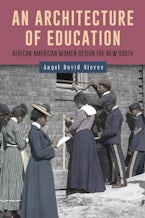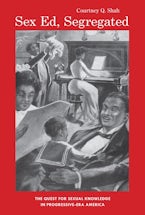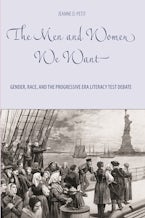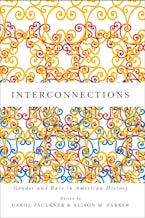
Title Details
222 Pages
22.8 x 15.2 cm
Series: Gender and Race in American History
Series Vol. Number:
2
Imprint: University of Rochester Press
Manhood Enslaved
Bondmen in Eighteenth- and Early Nineteenth-Century New Jersey
- Description
- Contents
- Reviews
Manhood Enslaved reconstructs the lives of three male captives to bring intellectual and historical clarity to our understanding of enslaved peoples in eighteenth- and early nineteenth-century central New Jersey.
Manhood Enslaved reconstructs the lives of three male captives to bring greater intellectual and historical clarity to the muted lives of enslaved peoples in eighteenth- and early nineteenth-century central New Jersey, where blacks were held in bondage for nearly two centuries. The book contributes to an evolving body of historical scholarship arguing that the lives of bondpeople in America were shaped not only by the powerful forces of racial oppression, but also by their own notions of gender. The volume uses previously understudied, white-authored, nineteenth-century literature about central New Jersey slaves as a point of departure. Reading beyond the racist assumptionsof the authors, it contends that the precarious day-to-day existence of the three protagonists -- Yombo Melick, Dick Melick, and Quamino Buccau (Smock) -- provides revealing evidence about the various elements of "slave manhood" that gave real meaning to their oppressed lives.
Kenneth E. Marshall is Assistant Professor of History at the State University of New York at Oswego.
Manhood Enslaved reconstructs the lives of three male captives to bring greater intellectual and historical clarity to the muted lives of enslaved peoples in eighteenth- and early nineteenth-century central New Jersey, where blacks were held in bondage for nearly two centuries. The book contributes to an evolving body of historical scholarship arguing that the lives of bondpeople in America were shaped not only by the powerful forces of racial oppression, but also by their own notions of gender. The volume uses previously understudied, white-authored, nineteenth-century literature about central New Jersey slaves as a point of departure. Reading beyond the racist assumptionsof the authors, it contends that the precarious day-to-day existence of the three protagonists -- Yombo Melick, Dick Melick, and Quamino Buccau (Smock) -- provides revealing evidence about the various elements of "slave manhood" that gave real meaning to their oppressed lives.
Kenneth E. Marshall is Assistant Professor of History at the State University of New York at Oswego.
Introduction: "Ain't No Account"
Black Images in White Minds
Powerful and Righteous
"His Disposition Was Not in Any Sense Agreeable"
Threat of a (Christian) Bondman
Work, Family, and Day-to-Day Survival on an Old Farm
Epilogue: "Losing It"
Notes
Bibliography
Index
Black Images in White Minds
Powerful and Righteous
"His Disposition Was Not in Any Sense Agreeable"
Threat of a (Christian) Bondman
Work, Family, and Day-to-Day Survival on an Old Farm
Epilogue: "Losing It"
Notes
Bibliography
Index
"Mr. Marshall's book ranges beyond these three men and their lives to look at general aspects of American slavery and its legacy for African-Americans in America today." BLACK & ASIAN STUDIES NEWSLETTER
"Compelling. . . Marshall successfully reads against the grain of long-ignored published historical sources, makes a strong case for the consideration of slavery in the rural North, and smartly balances analytic precision with interpretive framework." PENNSYLVANIA HISTORY: A JOURNAL OF MID-ATLANTIC STUDIES
"Manhood Enslaved is most successful in its richly detailed portrayal of the many-faceted daily lives of enslaved people in eighteenth- and early nineteenth-century New Jersey." JOURNAL OF AMERICAN HISTORY
Paperback
9781580464352
August 2013
$29.95 / £24.99
Ebook (EPUB)
9781580468312
November 2011
£24.99 / $29.95
Ebook (EPDF)
9781580467407
November 2011
£24.99 / $29.95
Title Details
222 Pages
2.28 x 1.52 cm
Series: Gender and Race in American History
Series Vol. Number:
2
Imprint: University of Rochester Press









